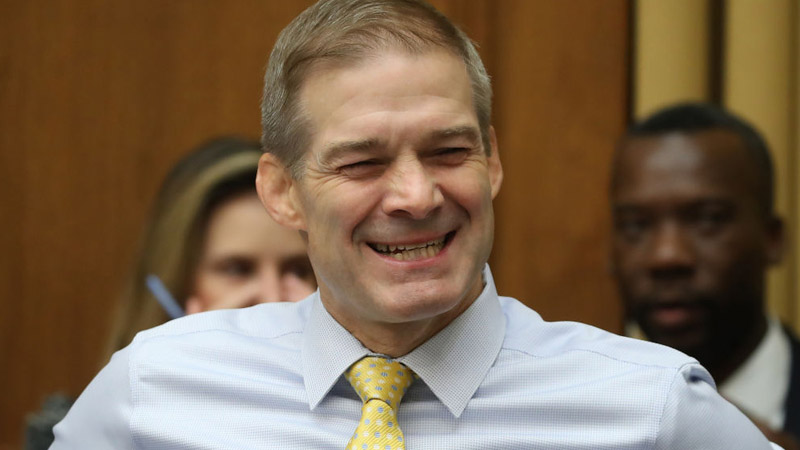“Hypocrisy Beyond Measure” Jim Jordan Defends Snubbing Jan. 6 Committee Subpoena

(Photo by Mark Wilson/Getty Images)
Rep. Jim Jordan (R-OH) defended his decision to snub a House committee subpoena about the effort to overturn the 2020 presidential election on Jan. 6, 2021. During a Wednesday House floor debate on holding Attorney General Merrick Garland in contempt, Rep. Jamie Raskin (D-MD) argued that claims of Department of Justice “weaponization” against Republicans “melted away” after President Joe Biden’s son Hunter was convicted of three felonies.
Raskin accused Republicans of sending former President Donald Trump’s felony conviction “down the Orwellian memory hole to save someone hurt feelings.” “So what’s left to do now?” Raskin said. “Well, let’s hold the Attorney General of the United States, Merrick Garland, in contempt, of course.”
The contempt charge against Garland came after Republicans demanded an audio tape of Biden recorded during special counsel Robert Hur’s investigation of mishandled classified documents. The attorney general said he could not turn over the recording because the White House had exerted executive privilege, told NBC News.
Raskin suggested Jordan was guilty of hypocrisy because he had also refused to comply with a subpoena from the January 6 Committee. “It’s rich beyond measure, like a billionaire rich, to be asked to hold the attorney general in contempt by people who themselves received subpoenas to testify before the January 6th Committee, who never rendered a single document nor a single minute of testimony to the January 6th Committee,” Raskin said.
Jordan quickly defended himself. “First of all, I never said I wouldn’t testify in front of the January 6th Committee,” the Ohio Republican insisted. “I just want to know what the parameters of that testimony were going to be, so I never did say no to that.”
Jordan’s defense did little to quell the heated debate, with Democrats highlighting what they view as a double standard. Raskin’s comments underscored the perceived inconsistency in holding Garland in contempt while some Republicans have themselves evaded accountability.
The issue at hand revolves around Republicans’ insistence on accessing an audio tape related to the investigation of mishandled classified documents. Garland’s refusal to turn over the tape, citing executive privilege, has only fueled the controversy.
As the debate continues, the focus remains on the broader implications of these actions. The decision to hold Garland in contempt is seen by many as a politically charged move, especially given the ongoing investigations and legal battles surrounding Trump and his associates.
Jordan’s refusal to comply with the January 6 Committee subpoena is emblematic of the deep partisan divide. His insistence that he never outright refused to testify, but rather sought clarity on the parameters, highlights the complexities and tensions that continue to define this contentious issue.


